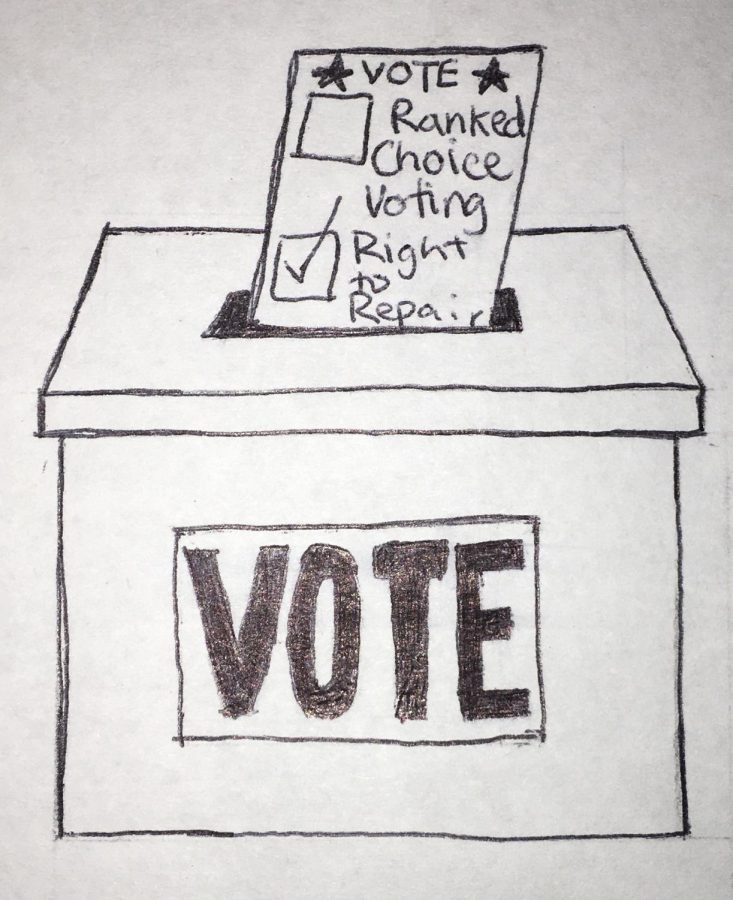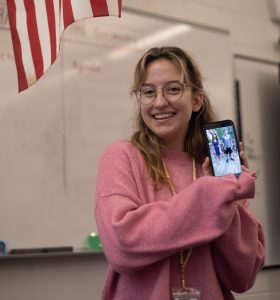Amid Presidential Election, Massachusetts Decides on Ballot Initiatives
December 3, 2020
Quickly forgotten in the midst of a historic presidential election, Massachusetts voters had their say on two statewide ballot questions, passing one but rejecting the other.
Question 1, known as the “Right to Repair” law, passed with almost 75% of the vote. This law expands a previous ballot initiative, passed in 2012, that required vehicle manufacturers to give independent repair shops, as well as a car’s owner, access to that car’s digital data. This year’s initiative expanded the mandate to include wireless transmission data. Proponents of the bill argued it would give car owners more independence and flexibility around choosing where to repair their car, taking away power from vehicle monopolies.
Local Cambridge service station owner JR Aziz commented to the Register Forum that from a service operator’s perspective, it “makes sense” to have access to this data, “so not to be under the dealer’s mercy.” On the other hand, opponents claimed that the law would cause safety concerns for vehicle owners, which Question 1 supporters disputed. Combined, over 32 million dollars were spent on television advertisements.
Conversely, Question 2 did not pass in Massachusetts; 54% voted against the initiative to implement “ranked-choice voting” for certain state and federal elections. Ranked-choice voting would have allowed voters to rank several candidates by preference. If a candidate received over half of the votes, they would have automatically won, but otherwise, the candidate with the least votes would have been eliminated and their votes reallocated to each voter’s second choice. Ranked-choice voting would give voters more autonomy, argued supporters of Question 2, while also giving third-party candidates a greater chance to win an election. CRLS student Julia D’amato ’23 agreed, adding that ranked-choice voting “gives America more variety and Americans more options.”
Opponents argued, however, that ranked-choice voting was undemocratic, complex, and too confusing to voters. Ultimately, it may have been that last point that stuck with voters. Massachusetts Secretary of the Commonwealth William Galvin noted at a press conference, held on November 4th, that “it’s complex, and many voters didn’t really grasp what it would mean for them.” But for many, the ballot questions may have been a mere afterthought.
Many CRLS students were unaware or uninformed about either ballot initiative. Esther Fu ’23 stated that the media focus was primarily on “who was going to win [the presidential election] because there is a lot at stake,” which may have limited awareness. Aziz noted that his service shop received many calls from voters asking for information on Question 1 because they found it confusing.
Even under the shadow of the presidential election, Massachusetts ballot questions can significantly affect citizens, including high school students. With many teenagers learning to drive before reaching voting age, Question 1 affects their future as well as their vehicles. While ranked-choice voting did not pass statewide, Cambridge has used it for the City Council and School Committee elections since 1939.
While results are not yet finalized, among Cambridge voters, approximately 80% of Cambridge voters voted yes on Question 1, and approximately 78% on Question 2, according to Tanya Ford, Executive Director of Cambridge Election Commission. Executive Director Ford told the Register Forum that over 51,000 Cambridge residents voted so far in this election. This is comparable to the 2016 presidential election, but more than the 2019 City Council and School Committee elections, as “municipal elections tend to not bring in as many voters.”
Nationwide, voter turnout was at a record high this election. Regardless of the results, that is a feat of its own.










